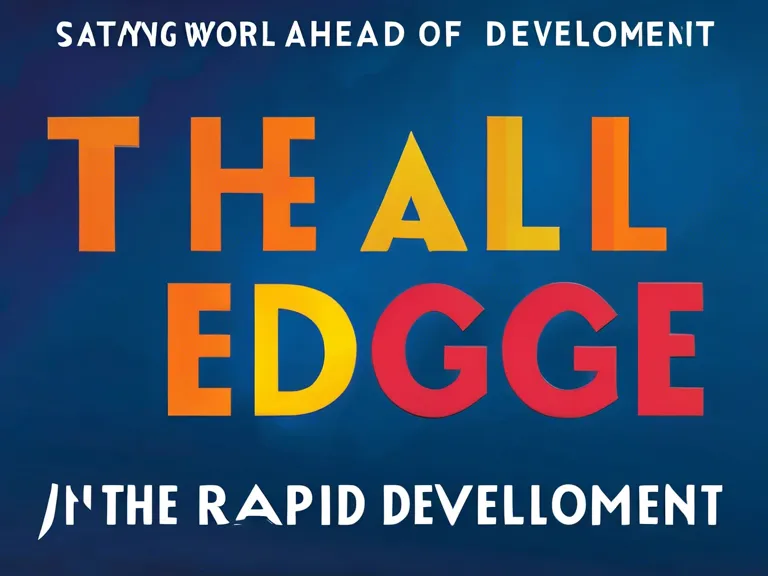
The Agile Edge: Staying Ahead in the Rapid World of Software Development
In the fast-paced world of software development, staying ahead of the game is crucial. With rapidly changing technologies and increasing customer demands, having the agility to adapt and deliver quickly is essential for success. This is where Agile methodology comes in.
Agile is a project management approach that emphasizes flexibility, collaboration, and iterative development. By breaking down projects into smaller, manageable tasks and prioritizing customer feedback, Agile teams are able to respond to changes more effectively and deliver working software faster.
One of the key principles of Agile is the idea of continuous improvement. By regularly reflecting on their processes and seeking ways to improve, teams can increase efficiency and adapt to new challenges quickly. This ability to pivot and adjust course is what gives Agile teams the edge in today's fast-paced software development landscape.
Another advantage of Agile is its focus on collaboration. By involving stakeholders, customers, and team members in the development process from the beginning, teams are able to create better solutions and deliver more value to users. This collaborative approach also fosters a sense of ownership and accountability among team members, leading to higher quality outcomes.
In addition to flexibility and collaboration, Agile also promotes transparency and communication. By using tools like daily stand-up meetings, kanban boards, and burndown charts, teams are able to stay on track, identify bottlenecks, and address issues quickly. This transparency helps to build trust among team members and stakeholders, ultimately leading to better outcomes.
In conclusion, the Agile methodology provides software development teams with the tools they need to stay ahead in today's rapidly changing landscape. By embracing flexibility, collaboration, continuous improvement, and transparency, Agile teams are able to deliver high-quality software faster and more efficiently than ever before.


